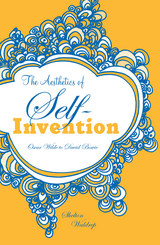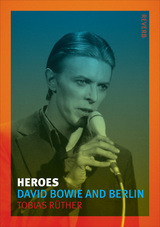
Traces the influence of Oscar Wilde as the precursor of twentieth-century artists of self-performance
By printing the title “Professor of Aesthetics” on his visiting cards, Oscar Wilde announced yet another transformation—and perhaps the most significant of his career, proclaiming his belief that he could redesign not just his image but his very self. Shelton Waldrep explores the cultural influences at play in Wilde’s life and work and his influence on the writing and performance of the twentieth century, particularly on the lives and careers of some of its most aestheticized performers: Truman Capote, Andy Warhol, David Hockney, and David Bowie. As Waldrep reveals, Wilde’s fusing of art with commerce foresaw the coming century’s cultural producers who would blend works of both “high art” and mass-market appeal.
Whether as a gay man or as a postmodern performance artist ahead of his time, Wilde ultimately emerges here as the embodiment of the twentieth-century media-savvy artist who is both subject and object of the aesthetic and economic systems in which he is enmeshed.
Painting a vivid picture of Bowie’s life in the Schöneberg area of the city, Rüther describes the artist’s friendships and collaborations with his roommate, Iggy Pop, as well as Brian Eno and Tony Visconti. Rüther illustrates Bowie’s return to painting, days cycling to the Die Brücke museum, and his exploration of the city’s nightlife, both the wild side and the gay scene. In West Berlin, Bowie also met singer and actress Romy Haag; came to know Hansa Studios, where he would record Low and Heroes; and even landed the part of a Prussian aristocrat in Just a Gigolo, starring alongside Marlene Dietrich. Eventually Rüther uses Bowie and his explorations of the cultural and historical undercurrents of West Berlin to examine the city itself: divided, caught in the Cold War, and how it began to redefine itself as a cultural metropolis, turning to the arts to start a new history.
Tying in with an exhibition at the Museum of Contemporary Art, Chicago, in September, 2014, Heroes tells the fascinating story of how the music of the future arose from the spirit of the past. It is an unforgettable look at one of the world’s most renowned musicians in one of its most inspiring cities.
READERS
Browse our collection.
PUBLISHERS
See BiblioVault's publisher services.
STUDENT SERVICES
Files for college accessibility offices.
UChicago Accessibility Resources
home | accessibility | search | about | contact us
BiblioVault ® 2001 - 2024
The University of Chicago Press









